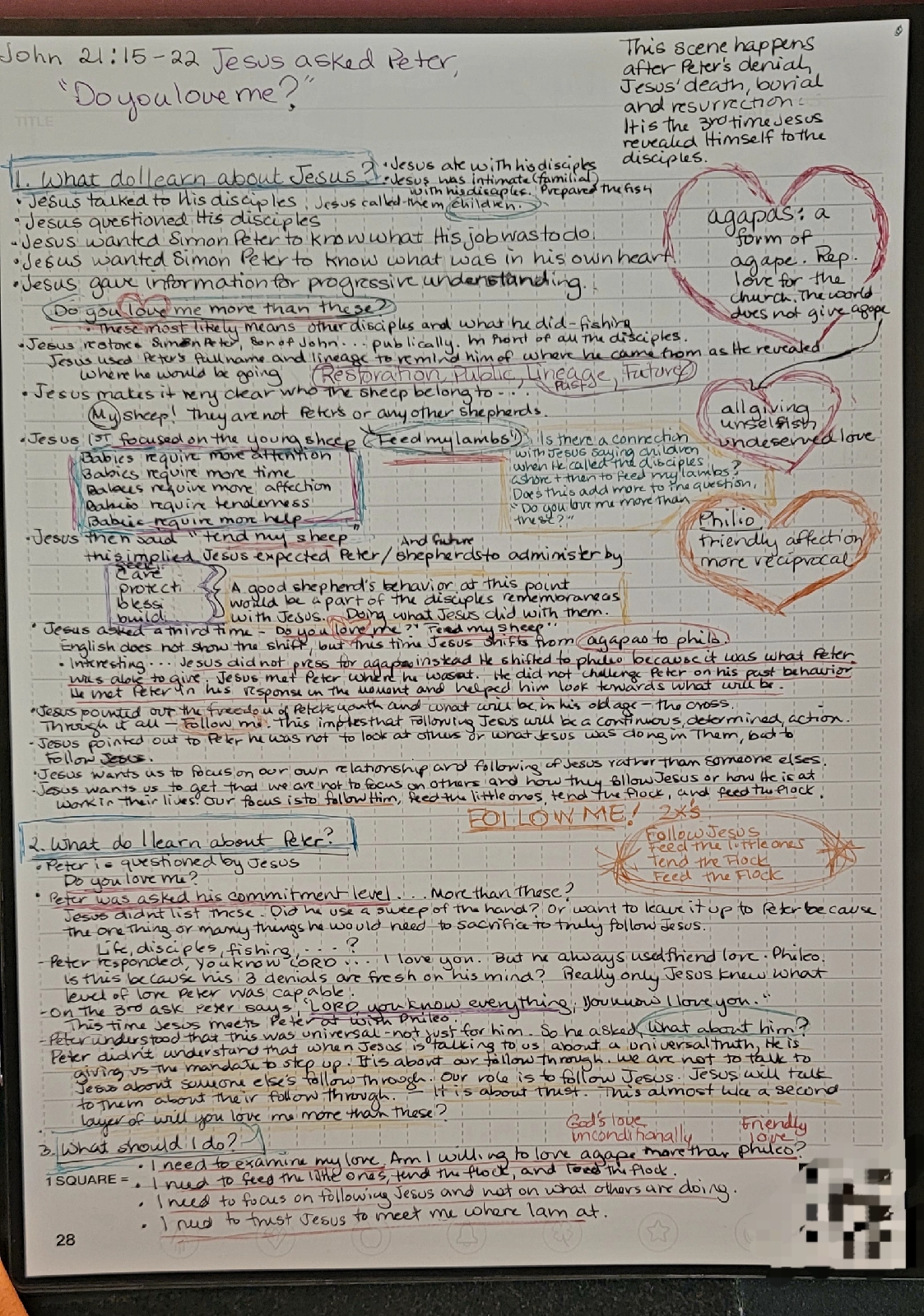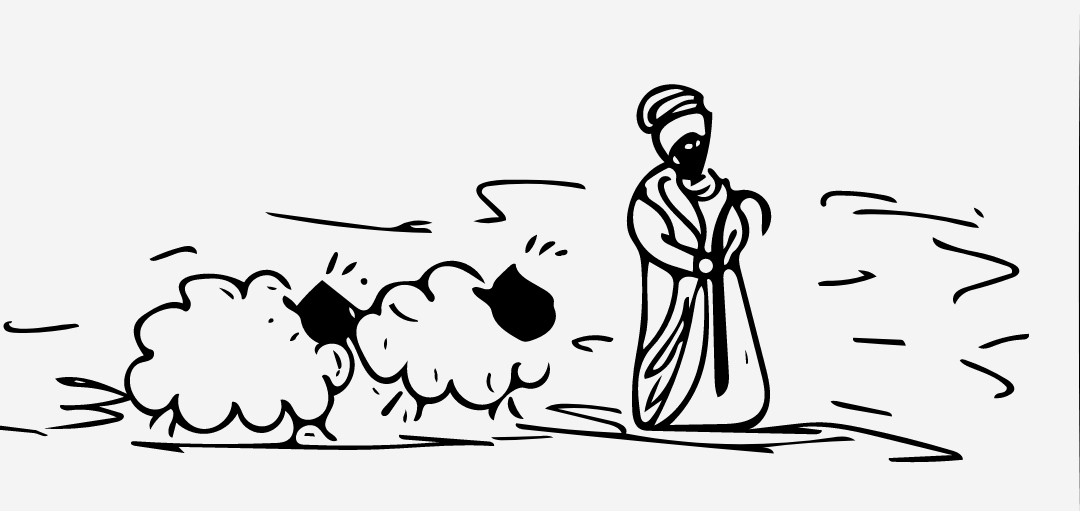I noticed something today I had not seen before. In John 21:5, Jesus called the disciples "children" when He invited them to come eat. This would not be seen as derogatory, but more as a term of endearment, familial, like a father calling his sons. Children are vulnerable, open, and still learning. Jesus helps them catch fish and then says, "Come, let's eat together." Again, Jesus modeled the spirit of welcome that we feel in our family as we sit and eat together. When we eat together the familial fellowship of familiarity allows us to be real and if holy, heal.
On the first time Jesus asked Peter, "Do you love me?" Jesus used agape love which is God's unconditional love. Peter responded by saying, "Yes, LORD, You know I friendship love you." Peter used phileo love which is man's friendship love. We don't know why Peter responded with a different type of love, but he did. Maybe it was because he knew he failed already three times and was not able to love Jesus no matter what.
Notice that Jesus did not point out the difference.
Jesus said, "Feed my lambs." I cant help, but see the connection to the call of "children" from verse five. A lamb is even more vulnerable than a sheep and sheep are considered the most vulnerable of all herd animals.
Remember, a good shepherd will seek out the small, vulnerable young ones to care, protect, bless (feed), and build his flock. Why? Because the young ones (vulnerable) require more attention, time, affection, tenderness, and help. A good shepherd pursues the most vulnerable.
In this moment, Peter is the vulnerable one. This scene follows after Peter's denial, Jesus' death, burial, and Resurrection. It is the third time the gospels reveal Jesus interacting with the disciples after His Resurrection. Is it possible that Peter was dealing with an internal struggle that needed to be dealt with because of his denials of Jesus?
Jesus sought him out. Most believe to restore Peter. I noticed that Jesus' restoration of Peter held some important processes. It was in front of the ones that knew Peter denied Jesus. Peter needed to be affirmed in front of the ones he lost face and soon will lead to reach thousands.
Jesus used Peter's full name. "Simon, son of John, do you love me?" I know that when my mom uses my full name two things are happening. I need to stop and listen and I am being reminded of who I am. There is a gift in this. It helps me to know the levity of the moment because usually I am in trouble or not paying attention to something very important. It also helps me know I am not alone. It is my story, my history, my lineage all wrapped up in my name. Jesus was reminding Peter of who is and where he comes from.
Listen, listen! Jesus needed Peter to be ready to respond.
Jesus then told Peter what it will be like for him as he grows older. John points out that Jesus told Peter that his death would be on a cross. This futuristic affirmation points out that Peter will no longer deny, but die like Jesus.
Jesus said, "Feed my lambs." "Tend my sheep." "Feed my sheep." There is alot of feeding and tending when you care for sheep. But it is different in what you will feed a lamb versus an adult sheep. It is almost as if Jesus is saying take notice of the differences and do so accordingly.
"Follow me!" Jesus affirmed.
As I meditated on this passage, I realized that Jesus was asking Peter about his commitment level. This is not about Jesus being affirmed, but Peter being confirmed. Peter needed to settle in his heart. He seemed to understand the universal lesson of following and sacrificing. But then he falls prey to comparisonitis. Peter points out John, the beloved one, and asks, "What about him?" I wish I could hear his tone as he asked this question.
Jesus gave Peter a mandate. "Follow me!" This mandate is for all believers, but in this moment Peter needed to understand that when Jesus is speaking to him, it is not about another person's journey. It is about HIS journey. "Follow me." This almost feels like a second layer of "Will you love me more than these?" Maybe this is why Jesus had to say it twice, "Follow me!"
It is all about follow through.
Follow Jesus.
Feed His lambs.
Tend His sheep.
Feed His sheep.
It is all about trust. Trust in the one you follow.
As I meditate on the Good Shepherd today, I am challenged to ask myself.
Am I willing to love with agape (God's unconditional love) more than in phileo (friendship love)?
Am I willing to feed the little ones (most vulnerable), tend the flock, and feed the flock?
Am I willing to focus on Jesus and not what others are doing?
Do I trust Jesus to meet me where I am and lead me?
Shalom y'all!






